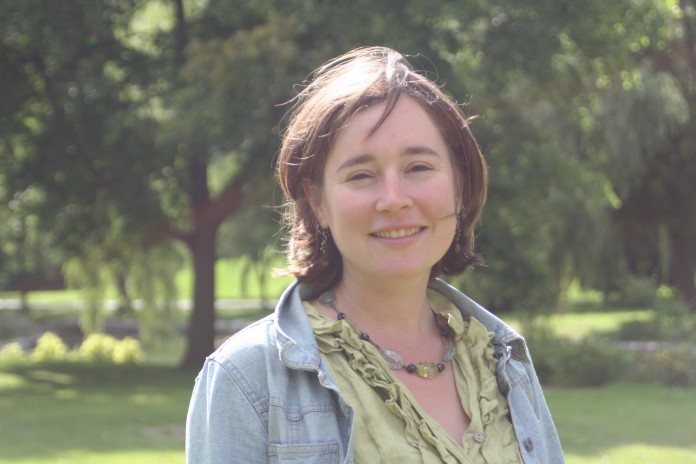I know exactly the moment that I decided to become a music therapist. That moment was at a hospital, where I was the patient.
I was diagnosed with Type 1 diabetes when I was 26 years old. At the time I was working as a musician and freelance writer. After experiencing many weeks of debilitating fatigue, dizziness, and weight loss, I had visited my family doctor. A quick blood test revealed that I had dangerously high blood sugar, and needed to get to an ER at once. It was there that I learned that I had Type 1, and would be on insulin shots for the rest of my life.
Being diagnosed with a life-changing illness can trigger a host of overwhelming emotions. For me, numbness was the strongest thing I felt. Lying in a hospital bed for two days, hooked up to machines and getting shots every hour, I tried to absorb information about my new disease, and what my life would look like from now on. There was no ER social worker that came to visit, no clear moment where any health care provider asked me how I was doing with my diagnosis.
It was that first night in the hospital where something dramatically changed for me. I had just been woken up for my hourly blood-draw, and couldn’t fall back asleep. The person next to me was experiencing some sort of pain crisis, and the ER was generally a busy, noisy place to have a good night’s sleep. Out of habit (being a lifelong musician and singer), I began humming a song under my breath, “Basement Apartment” by Sarah Harmer.
Suddenly, I felt the tide of tears build up inside of me. My whole body, it seemed, was finally experiencing emotion. It was as if the deeper breathing and bodily vibrations of just this simple humming was enough to release all the fear, sadness, grief, and shock of my new diagnosis. Singing, even so softly and for just a moment, made me feel human again.
MORE: VACCINES ARE SAFE TIME TO COMMUNICATE IT
It was too much. I knew instantly that I had to stop singing. The depth of emotion I was accessing was too big for this ER. If I opened that floodgate of feeling, there would be no one there to help me through it. And I could not go through this swampland of feelings alone.
That’s when something crystalized for me: this hospital needs more music therapists, I thought to myself with clarity uncommon for 2am. It needs more music therapists so that people can safely fall apart when they need to.
Several years later, I now have a master’s in music therapy, and a growing clinical practice in inpatient and outpatient oncology. As the new music therapist at Grand River Regional Cancer Centre in Kitchener, I am a daily witness to how music can transform patients’ experience of their pain, provide comfort, create relationships, ease family dynamics, and even soften the whole hospital environment for patients and staff alike. Be it offering a patient a chance to express themselves on an instrument, facilitating a drum circle with a family around a patient’s bed, helping a patient write a song to their loved ones, or just quietly singing at a patient’s bedside, music never seems to fail at making an impact.
MORE: VACCINES & IMMUNIZATIONS: CANADIAN INNOVATION
One of the mandates of McGill University’s Programs on Whole Person Care is to “create a space where healing may occur,” regardless of whether changing disease outcomes is possible. Music creates this kind of healing space, and it is often the smallest music that makes the biggest impact. It took only a few notes of a Sarah Harmer song, hummed under my breath in an ER, to unleash the flood of emotion the night of my diagnosis. On the inpatient oncology unit, working with some of the hospital’s sickest patients, often it is just quiet, barely-audible singing or humming by the patient’s side that can create the strongest connection. While around them machines beep, equipment clatters and nurses rush in and out attending to endless interventions, just breathing and humming with a patient can provide a simple thread of connection, focus, and beauty.
It is a privilege to be part of a multidisciplinary team committed to supporting the whole patient through their cancer journey, and to be using music to help meet this goal. My diagnosis story reminds me of how easy it is to lose one’s identity in a hospital bed, and the importance of music in delivering person-centred care. It reminds me of what a powerful gift music can be in the most vulnerable moments of our lives.




